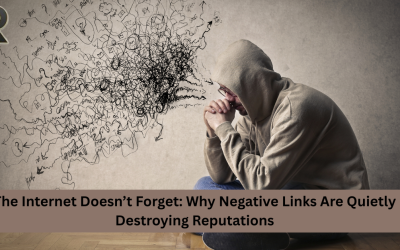Online Brand Reputation Management Services & Strategies
In today’s digital age, a brand’s reputation is more critical than ever. With the rapid spread of information through social media and review sites, maintaining a positive brand image can be both challenging and crucial for success. Brand reputation management involves actively shaping and maintaining a brand’s public perception through strategic efforts and actions. This article explores the importance of Online brand reputation management Services, effective strategies, and best practices to ensure a strong and positive brand presence.
Table of Content
- The Importance of Brand Reputation Management
- Strategies-for-Effective-Brand-Reputation-Management
- Best-Practices-for-Brand-Reputation-Management
- How-to-Manage-Online-Reputation
The Importance of Brand Reputation Management
- Trust and Credibility: A positive brand reputation fosters trust and credibility among consumers. When customers trust a brand, they are more likely to make purchases and recommend the brand to others.
- Customer Loyalty: A strong reputation leads to increased customer loyalty. Satisfied customers are more likely to return and become advocates for the brand, providing valuable word-of-mouth promotion.
- Competitive Advantage: A well-managed reputation can differentiate a brand from its competitors. Consumers often choose brands with a positive image over those with a tarnished reputation.
- Crisis Resilience: A good reputation can help a brand weather crises more effectively. Brands with strong reputations are often given the benefit of the doubt by consumers during challenging times.
Strategies for Effective Brand Reputation Management
- Monitor Your Online Presence: Regularly monitor what is being said about your brand online. Use tools like Google Alerts, social media listening tools, and review monitoring platforms to stay informed about brand mentions and feedback. For those seeking professional assistance, consider engaging brand reputation management services to ensure thorough monitoring and response.
- Engage with Your Audience: Actively engage with your audience on social media and other platforms. Respond to comments, address concerns, and show appreciation for positive feedback. Building a relationship with your audience can enhance your brand’s reputation.
- Encourage Positive Reviews: Encourage satisfied customers to leave positive reviews on platforms like Google, Yelp, and Trustpilot. Positive reviews can counteract negative ones and boost your overall reputation.
- Address Negative Feedback Promptly: Respond to negative feedback promptly and professionally. Acknowledge the issue, apologize if necessary, and offer a solution. Handling negative feedback well can turn a dissatisfied customer into a loyal one. This is a key aspect of online brand reputation management.
- Create High-Quality Content: Consistently produce high-quality content that reflects your brand’s values and expertise. Blog posts, videos, infographics, and social media updates can all contribute to a positive brand image.
- Leverage Influencers and Brand Ambassadors: Collaborate with influencers and brand ambassadors who align with your brand’s values. Their endorsement can enhance your brand’s credibility and reach a wider audience.
- Maintain Transparency: Be transparent about your business practices, values, and policies. Transparency builds trust and demonstrates that your brand has nothing to hide.
- Invest in Corporate Social Responsibility (CSR): Engage in CSR activities that align with your brand’s values. Supporting social causes and giving back to the community can positively impact your brand’s reputation.
Best Practices for Brand Reputation Management
- Develop a Crisis Management Plan: Prepare for potential crises by developing a comprehensive crisis management plan. This should include protocols for addressing various types of crises, designated spokespeople, and communication strategies.
- Train Your Team: Ensure that all team members, especially those in customer-facing roles, are trained in brand reputation management. They should understand how to handle feedback, both positive and negative, and represent the brand professionally.
- Regularly Assess Your Reputation: Periodically assess your brand’s reputation through surveys, focus groups, and online sentiment analysis. This will help you understand how your brand is perceived and identify areas for improvement.
- Stay Authentic: Authenticity is key to maintaining a positive reputation. Be true to your brand’s values and mission, and avoid making promises that you cannot keep.
- Adapt to Changes: The digital landscape is constantly evolving. Stay informed about new platforms, trends, and best practices in brand reputation management, and adapt your strategies accordingly.
How to Manage Online Reputation
Managing your online reputation is a crucial part of brand reputation management. Here are some specific strategies to effectively manage your online reputation:
- Create and Optimize Your Online Profiles: Ensure that all your online profiles, including your website, social media accounts, and business listings, are complete, accurate, and optimized with relevant keywords like “brand reputation management services” and “online brand reputation management services.”
- Monitor Online Reviews and Mentions: Use tools to keep track of online reviews and mentions of your brand. Respond promptly to both positive and negative feedback to show that you value customer opinions and are committed to improving your services.
- Generate Positive Content: Publish positive content regularly. This can include blog posts, customer testimonials, case studies, and news updates about your brand. Positive content can help overshadow negative mentions and improve your online reputation.
- Engage in Social Listening: Social listening involves tracking conversations about your brand on social media and other online platforms. This helps you understand public sentiment and allows you to address issues proactively.
- Utilize Online Brand Reputation Management Services: Professional services can provide comprehensive online brand reputation management. These services include monitoring, response strategies, content creation, and crisis management, ensuring your brand maintains a positive image online.
Brand reputation management is an ongoing process that requires vigilance, dedication, and strategic action. By actively monitoring your brand’s presence, engaging with your audience, addressing feedback, and maintaining transparency, you can build and maintain a strong, positive brand reputation. In today’s competitive market, a well-managed reputation can be the difference between success and failure. Invest in your brand’s reputation management to ensure long-term success and growth.
Whether you are handling it in-house or seeking professional online brand reputation management services, the goal remains the same: to foster trust, loyalty, and a positive perception of your brand. By following these strategies and best practices, you can effectively manage your online reputation and secure a favorable position in the marketplace.



